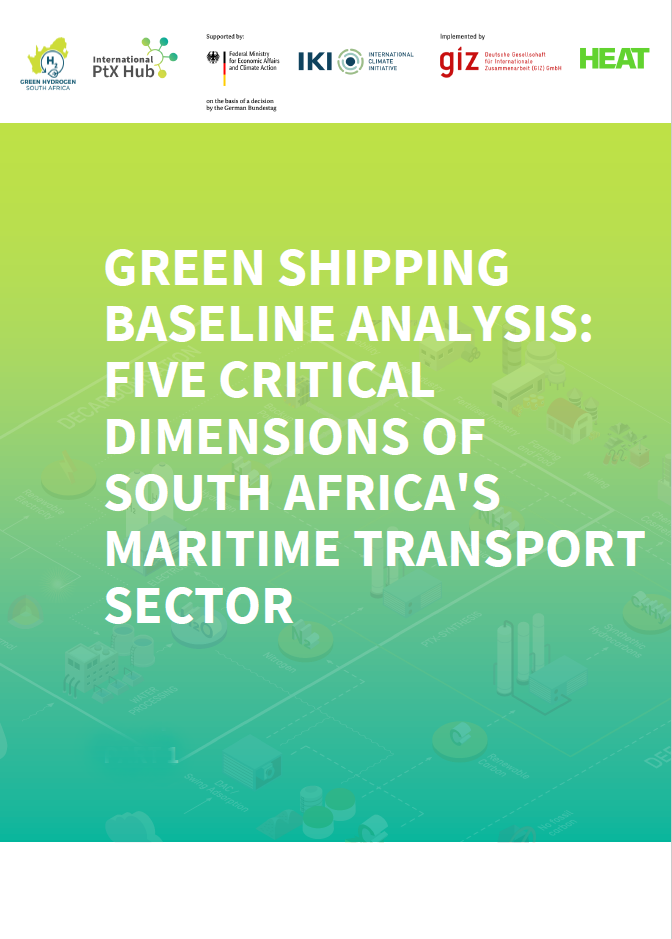Maritime Decarbonisation and PtX Opportunities in South Africa’s Shipping Sector
This study explores South Africa’s maritime transport sector in the context of the global shift towards defossilisation and zero-carbon shipping. Driven by international regulations, notably from the International Maritime Organization (IMO), and regional policies such as the EU Carbon Border Adjustment Mechanism (CBAM), the maritime sector faces increasing pressure to reduce emissions while maintaining trade competitiveness.
The study provides a comprehensive desktop analysis of five key dimensions: the current state of South Africa’s maritime economy, international market connections, emissions from shipping activity, port infrastructure, and the stakeholder ecosystem. In doing so, it identifies opportunities to align South Africa’s ports and shipping with emerging green maritime standards through the production and supply of Power-to-X (PtX) fuels.
Findings show that while South African ports play a crucial role in regional and global trade—handling over 95% of the country’s imports and exports—they remain heavily reliant on foreign vessels and fossil fuels. Emissions in South African waters reached an estimated 10 MtCO₂eq in 2023, with bulk carriers, cargo vessels, and container ships being the main contributors. Meanwhile, trade exposure to EU climate policy is rising, with ZAR 50 billion worth of exports falling under CBAM.
The report outlines how strategic port upgrades, green trade strategies, and investment in PtX fuel production hubs—particularly in Special Economic Zones at Coega, Saldanha Bay, and Richards Bay—can position South Africa as a key player in the future green shipping economy. Coordinated action by government, industry, and civil society is essential to enable this transition.
Key recommendations include:
- Developing PtX fuels and green bunker supply chains,
- Aligning maritime policy and fuel regulations with global standards,
- Upgrading port infrastructure and digital systems,
- Monitoring vessel emissions and supporting low-carbon fleet development, and
- Establishing green trade corridors and bilateral shipping partnerships.
The study supports South Africa’s broader decarbonisation agenda and highlights PtX as a critical enabler for a just, competitive, and sustainable maritime future.
